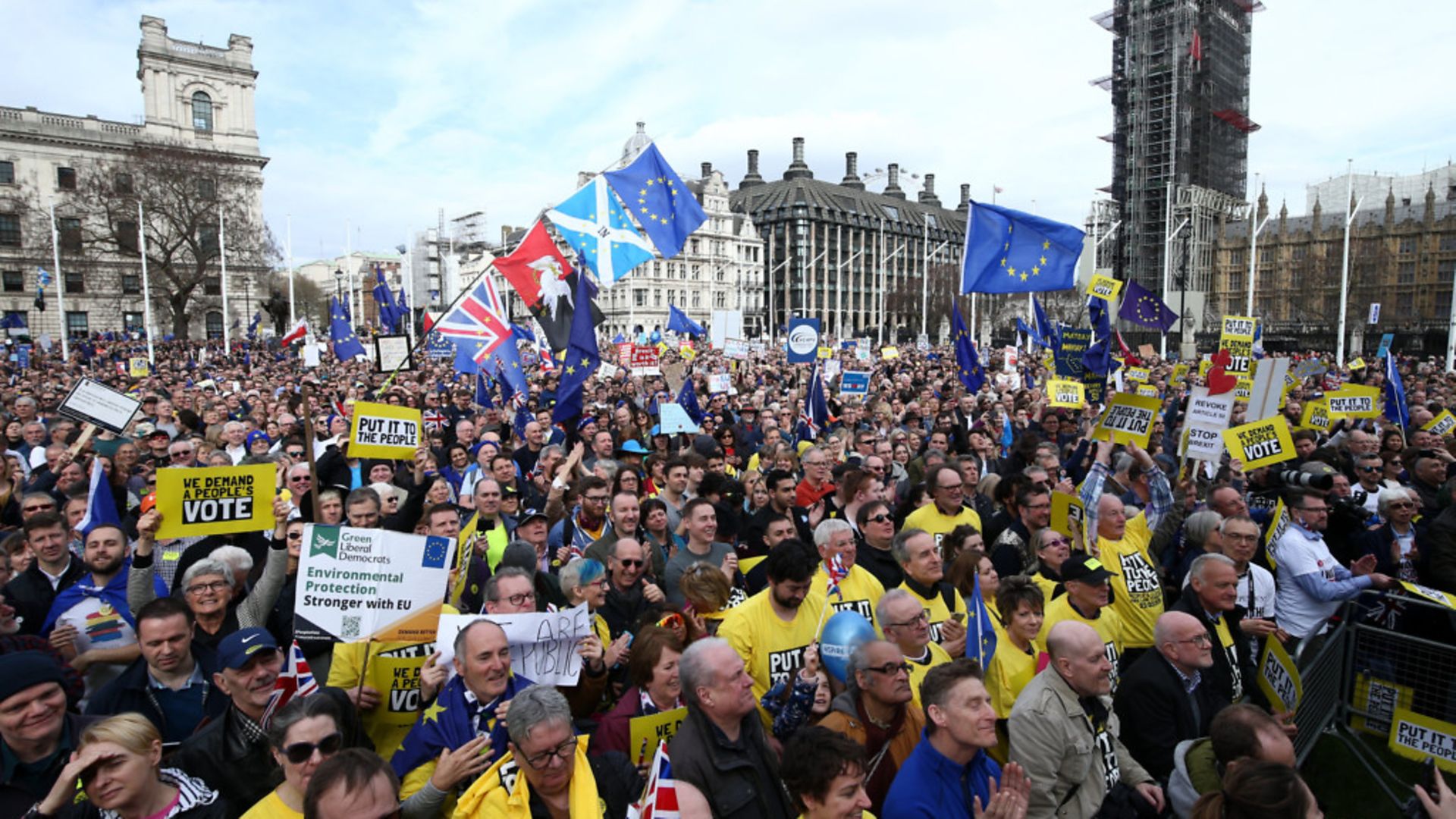
Of all the bad takes during a busy Brexit period, it is one of the worst, and yet for some reason it is stubbornly popular: the idea that Remainers are responsible for this mess. It’s a thought so stupid a child can see the problem with it, but many professional political commentators cannot.
The argument comes from two distinct camps: those who were sympathetic to Theresa May’s deal and those who supported Jeremy Corbyn. But at the heart of both sets of arguments is one falsity. They claim that soft Brexit was on offer and Remainers threw this opportunity away when they pushed for a second referendum. In reality, this never happened.
The first thing to be clear about is what soft Brexit actually is. It means leaving the EU but staying in the single market and customs union.
May never offered it. From October 2016, she was clear that the need to end free movement and the jurisdiction of the European Court of Justice meant Britain would leave the single market and customs union. Instead, we got hard Brexit: a complete rupture with Europe, economically and politically.
That was not just a policy programme. It was also an ideological one, involving the “citizens of nowhere” speech, attacks on parliament, grim nonsense about European meddling in British democracy and ministerial silence in the face of tabloid attacks on the judiciary. It was the moment the Conservative party absorbed UKIP’s politics into its bloodstream.
The Corbyn blame game begins with the proposition that Labour offered a soft Brexit only to have it rejected by Remainers seeking a second referendum. This never happened either. Corbyn only committed to the customs union in February 2018. He never explicitly committed to single market membership. The party constantly spoke of “tariff-free access to the single market”, which is really no different to what Johnson is now offering.
Both May and Corbyn’s defenders place a lot of emphasis on the indicative votes which took place in the Commons in March 2019, initiated by rebel Tory MP Oliver Letwin to test out whether there was a majority for any outcome. In the end, none succeeded.
Plans for membership of the customs union fell by 264 votes to 272. Those for membership of the single market – dubbed Common Market 2.0 – fell by 188 to 283. Those for a referendum on May’s deal fell by 268 votes to 295.
It was a depressing moment. If those voting for soft Brexit had backed a second referendum and those supporting a second referendum backed a soft Brexit, a moral consensus around more moderate options might have been established.
But even so, it’s important not to over-emphasise it. Many people seem to believe that a successful indicative vote would have legally secured its outcome. It would have done nothing of the sort.
May’s government was implacably opposed to any of the options and would not have implemented them. Had it tried to, it likely would have been toppled by hardline Tory Brexiter MPs, as indeed it was in the end over a much harder package. And then the internal Conservative process would have selected Johnson – the man with easy answers – as leader and we’d be back where we are right now.
The truth is much simpler than all these post-hoc contortions. It is this: the blame for Brexit lies with the political leaders of Brexit.
They were the ones who conceived of and promoted this idea. They were the ones who became embroiled in a cognitively degenerating project in which only ever-more extreme formulations were considered suitably virtuous. They were the ones who rejected the notion of empirical fact in political debate, or pragmatism in policy-making, or moderation in public campaigning.
This is not about portioning out blame in order to preserve reputations. It is about a basic moral principle. Politicians must be held to account. Their words must be compared to their actions and the consequences of their actions must be judged against their words. That is how we decide which ideas are good, which are dangerous and which we should carry into the future.
Remainers recognised the dangers of the moment we are in right from the very beginning. They argued against it. They risked the hatred of crowds and the condescension of political commentators. They fought for what was best for their country and they have a record they can be proud of, even in defeat.
It is unsurprising that those who failed to stand up to Brexit are now desperately trying to deflect blame when the damage rears into view, but no child would fall for this and we shouldn’t either. It is the Brexiters who are responsible for Brexit, not the people who opposed it. And now they must be made to own it.
Have your say on this story and the big news stories of the week by emailing letters@theneweuropean.co.uk. You can also continue the debate on our Facebook group.










